Used JLG G10-55A For Sale
Don’t miss out on this amazing used JLG G10-55A for sale! This telehandler is truly a rare beast that can handle all the toughest jobs you can assign it. With this amazing giant in your inventory, no task will be impossible for you and your team!
Understandably, when it comes to buying construction equipment, you would be inclined to buy a new telehandler instead of an old one, owing to the idea that new equipment is completely pristine and undamaged. However, is it really such a wise choice to invest in expensive construction equipment all the time? Let’s find out through this article!
What is a telehandler used for?
A telehandler is a relatively little-known type of construction equipment, although it is used extensively in both construction and farming. Think of it as a cross between a forklift and a crane: It has a boom that can move not only vertically but also forward and backward, allowing you to make complex maneuvers that are impossible on a forklift. You can also attach other attachments to the end of the boom in order to allow the telehandler to accomplish special tasks. Because a telehandler is extremely versatile, it can be used in a lot of different projects.
When to buy a used JLG G10-55A for sale?
Buying a used JLG G10-55A for sale comes with its own set of benefits that will greatly help you in tight situations. Here are the top situations in which you should consider a used telehandler instead of a new one:

- When you need to cut down on costs: It certainly costs a great deal to buy a new telehandler, so when you have a limited budget, a used telehandler, or used construction equipment on a whole, will definitely be a sound investment.
- When you are looking to resell the equipment: If you are going to buy a telehandler and then resell it after a few months, we would suggest you buy a used telehandler instead of a new one, as new telehandlers depreciate very quickly.
- When you need the telehandler in a short notice: Sometimes, you will have to wait for the manufacturers to start assembling the machine if you buy a new telehandler. A used telehandler is readily available and all you have to do is to wait for the delivery.
JLG G10-55A: A juggernaut
This model is truly an impressive machine. Its rated capacity is 10,000 pounds, allowing it to take on very heavy-lifting tasks. The boom can reach as high as 55 ft and as far as 42 ft. The spacious cabin will add a lot more comfort to the driver, and there is also an integrated armrest for added comfort.
Don’t hesitate to contact our experts when you need to find a used G10-55A for sale! We have been providing high-quality services to our customers since 1990, and they have received nothing but satisfaction! Call our experts now for professional consultation as well as advice on how to keep your construction equipment in its best shape!
A telehandler, also known as a teleporter or a reach forklift, is a machine widely used in the construction industry. It is somewhat like a forklift but has a boom, making it more a crane than a forklift, with the increased versatility of a single telescopic boom that can extend upward and forward from the machine. The boom can be fitted with different attachments, such as a bucket or a muck grab.
In industry, the most common attachment for a zoom boom is pallet forks and the most common application is to move loads to and from locations unattainable for a conventional forklift. For example, telehandlers have the capability to remove palletized material from within a container and to place that cargo on to rooftops and other elevated locations. The latter use would otherwise require a crane, which is not always practical or time-efficient on a job site.
In the agricultural industry the most common attachment for a telehandler is a bucket grab, again the most widely used application is to move loads from and to unreachable for a ‘conventional machine’ which in this case is a wheeled loader or backhoe loader. For instance, telehandlers are able to extend directly into a high-sided trailer or hopper. The latter application would otherwise require a loading ramp, or something similar.
